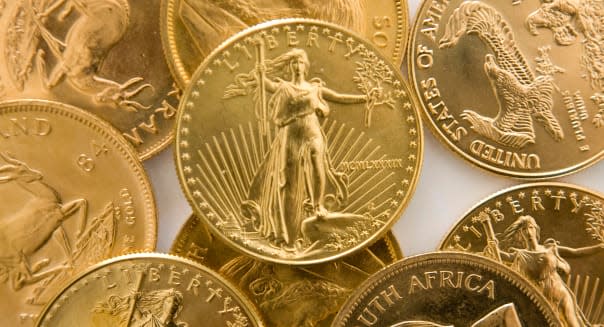If We Lose, They Win: Who'd Have Benefited From a Debt Default?

Over the last few weeks, as battles over the government shutdown and the debt ceiling raged in Washington, it became increasingly hard to find anyone really benefiting from the fight. The losers were easy to find: basically, anybody who relies on government spending, anyone who relies on a stable economic system, and anyone who relies on government programs like food inspection has definitely been hurt. In context, it's hardly surprising that even the Koch brothers, among the strongest supporters of the Tea Party's lower taxes/lower services mantra, were pushing GOP congressmen to make a deal and avert a debt ceiling default.
So those are the losers. Winners and potential winners, however, are harder to find. Certainly, a few congressmen -- notably Sen. Ted Cruz (R-Texas) -- rode the crisis to greater prominence, though one could argue that polling in the past few weeks have proved that not all publicity is good publicity. Now that the Senate deal has saved us in the nick of time, Harry Reid (D-Nev.) and Mitch McConnell (R-Ky.) may pick up some statesman points for stepping forward finally corralling Congress into preventing economic oblivion.
But beyond the obvious political hard-liners, who might have benefited from letting the debt limit clock hitting zero? Who had money on the line, and a rooting interest in America's failure?
Here are a few of our best bets:
Lawyers
Warren Zevon once crooned about the need to send "Lawyers, Guns and Money" when things get rough. Regarding the first, it seems likely that some of the victims of the shutdown, including children denied entrance into Head Start programs, consumers poisoned by uninspected meat, and veterans denied access to federal monuments, will take their problems to the courts. And, for that matter, even though the shutdown is over, the longer-term results of Congress' economic shenanigans could push more Americans in bankruptcies and foreclosures.
Guns
Over the past few years, fears about economic and political destabilization have driven gun sales through the roof. Gun manufacturers and private equity firms, like Cerberus Capital Management, that invest heavily in the gun business, have made record profits. With social spending cut and economic insecurity rampant, it isn't hard to see why many people might want to buy the kind of "security" that they can tuck under their pillows.
Money
Score another one for Zevon. The value of the dollar is largely based on the perception that the U.S. government pays its debts -- always. When that perception slips, it could take the value of the dollar with it. Currency traders who bet against the buck stand to make a pretty penny when political gridlock casts doubt on the full faith and credit of the United States of America.
Gold Bugs
Speaking of things that (theoretically) don't lose their value, gold is a classic refuge when more traditional investments go south. This, incidentally, is why it did so well the last time we went through an economic disaster. For this reason, gold bugs sprout up in times of economic misery.
Pawn Shops
Speaking of guns, money and gold, pawn shops usually clean up when things go downhill. In many areas, they are a good source for low-cost firearms; beyond that, though, they also tend to be one of the first stops for desperate people hoping to cash in on their possessions, including gold. With a high-profit business model, it isn't hard to see why they did so well in the last economic crisis, why they've likely done well in this one, and why they benefit from long periods of economic turmoil.
Surplus Stores
When things get really bad, surplus stores are great places to be. From low-cost dehydrated food to firearms, paramilitary equipment to discount clothing, they're a veritable Mecca for people looking to stretch their money -- while preparing for the worst.
Glenn Beck
For years, Glenn Beck has been urging his viewers to prepare for a societal collapse. For him, the worst case scenario has generally been a best-case profit center: Whether the commodity in question is gold, dehydrated food, or farmland, he's reaped huge earnings from his advertisers. To him, an economic storm cloud on the horizon (or right overhead) would certainly have a silver -- or gold -- lining.
Bruce Watson is DailyFinance's Savings Editor. You can reach him by e-mail at bruce.watson@teamaol.com, or follow him on Twitter at @bruce1971.
(Editor's note: This article was updated late Wednesday evening to reflect the passage by both the Senate and House of a bill to end the government shutdown and raise the debt ceiling.)

